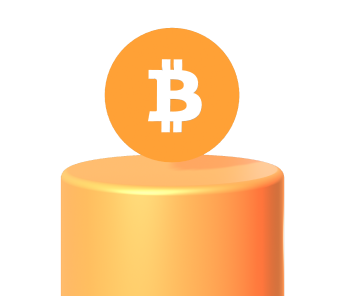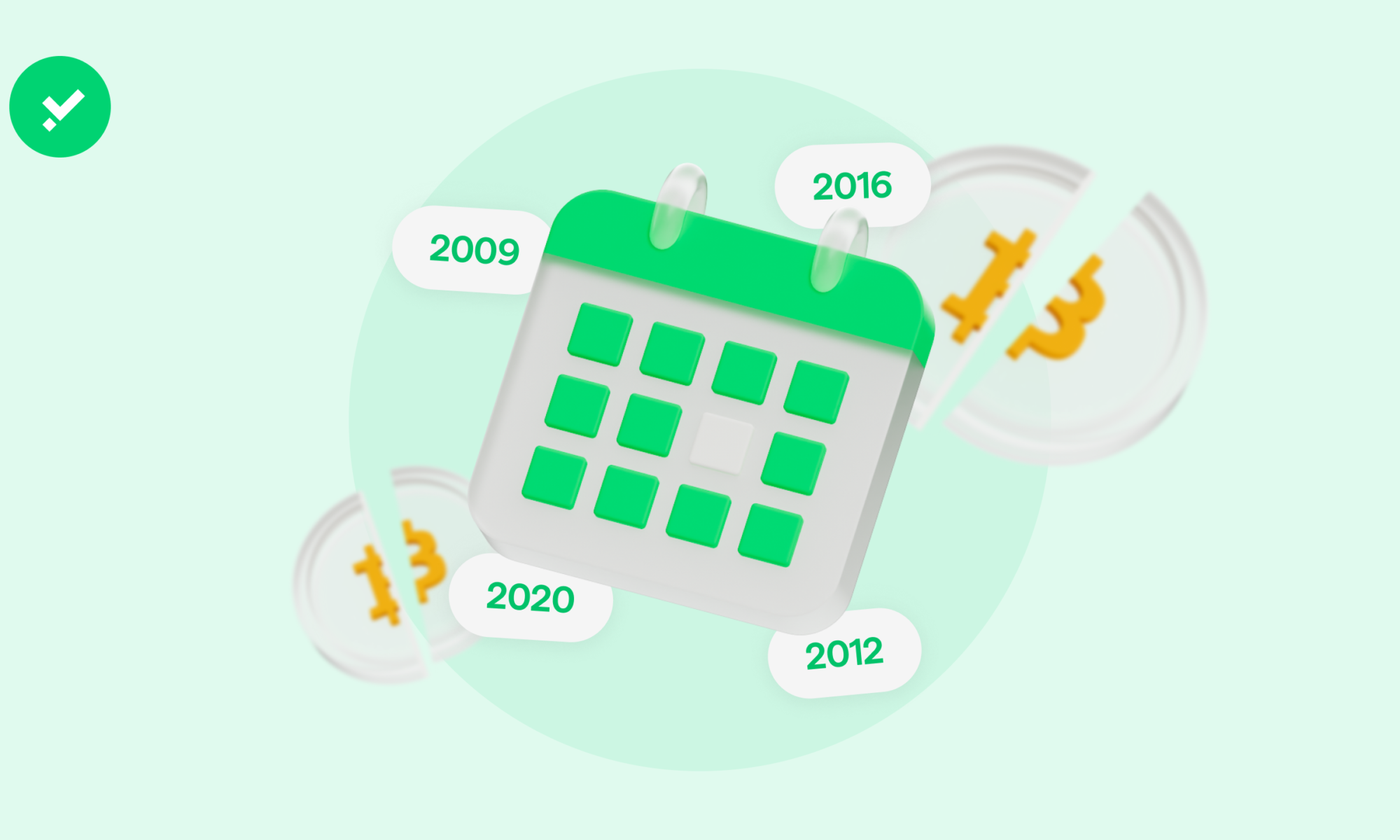Bitcoin halving: here’s the history and dates to keep in mind. When did they occur, and what happened to Bitcoin issues?
There have been three halvings of Bitcoin in history so far, and the dates of each have always been closely monitored. This mechanism, internal to the system, regulates the gradual decrease in rewards given to miners who validate blocks. It reduces crypto in circulation and thus maintains scarcity, and it is one of the most anticipated moments for the entire crypto market.
In this article, we will look at the history of Bitcoin’s halving by specifying the dates on which these halvings occurred and try to understand their effect on the price. So far, during the halving market cycles, Bitcoin’s price growth has been more than exponential.
You will find a complete guide to the upcoming 2024 Bitcoin halving at the following link.
Halving of 2012
The first Bitcoin halving in history took place on 28 November 2012. This event marked a crucial turning point for the crypto world, as this mechanism was activated for the first time.
In the months that immediately followed, the price of BTC was not positively affected by the event. However, from the beginning of 2013 onwards, the value of the crypto began to rise steadily, reaching a high of over $1,100 in April. This figure, which seems derisory to this day, was impossible to predict at the time and was reached from the $8 level, thanks to a bullish movement of 12,000%.
- Date: 28/11/2012
- Block number: 210,000
- Rewards per block: 25 BTC
- Price: $12
- Price one year later: $964
Halving of 2016
The second halving in Bitcoin’s history took place on 9 July 2016. Because of BTC’s incredible performance in the months following the first halving, many expected the price to rise, which indeed came in May of that year. A few days before, the rewards for miners halved. However, the value plummeted from $750 to $450. In the following months, digital gold literally exploded to the upside, its value orbiting around the $20,000 mark a year and a half later.
- Date: 09/07/2016
- Block number: 420,000
- Rewards per block: 12.5 BTC
- Price: $663
- Price one year later: $2550
The halving of 2020
The pandemic’s start strongly influenced Bitcoin’s price action at the third halving in history (May 2020). After the disastrous performance in 2018, Bitcoin’s price returned strongly in early 2019. However, the arrival of Covid-19 also strongly influenced digital gold, which lost more than 60% of its value from January to April.
After touching the low point on 20 April 2020, it resumed strongly, using the following month’s halving as a ‘launching pad’. The bullish market cycle of the third halving in history culminated in the current ATH at $69,000.
- Date: 11/05/2020
- Block number: 630,000
- Rewards per block: 6.25 BTC
- Price: $8,740
- Price one year later: $58,000
Want to prepare for the next halving coming? Consider accumulating some Satoshi through recurring buying. That way, you won’t suffer too much from market volatility.
Activate a Money Box
Halving 2024: Where can Bitcoin go from here?
- Date: 20/04/2024
- Block number: 840,000
- Rewards per block: 3,125 BTC
- Price: $64,500
- Price one year later: N/A
Now that the halving of 2024 is behind us, one might wonder whether this event will make history in the crypto sector as it has in the past. It has to be said that Bitcoin and the entire cryptocurrency sector are very different from when its predecessors took place. By now, BTC has become a recognised asset even by institutional investors, especially after the approval of spot ETFs issued by large US funds.
Buy Bitcoin!
Therefore, it can be useful to compare it with other assets to try and predict how it will behave. For instance, there are those who see BTC as the digital store of value par excellence and, therefore, believe that its price can grow tremendously. Today, the market capitalisation of gold (the most important physical store of value) is twelve times larger than that of BTC.
Some instead think that crypto will become the native currency of the Internet. According to the scenario, there is still a lot of room for expansion of this market; the adoption of Bitcoin is still very limited compared to that of the network.
In short, from a historical perspective, the halving of Bitcoin has always positively influenced prices. Of course, one cannot say that the bullish phases of the past were caused solely by these events, but they certainly contributed to a positive narrative.



